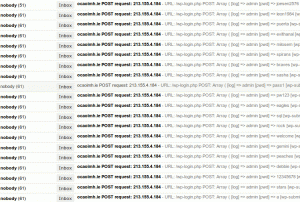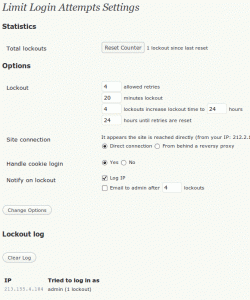Exciting times in the world of WordPress and WordPress MU. Last weekend’s announcement by Matt that WordPress MU would merge into WordPress caused a flurry of activity and questions on twitter and on blogs, most notably with speculation that WordPress.org would run on MU and by jeffr0 who asked me on IRC what was happening.
Basically, the thin layer of code that allows WordPress MU to host multiple WordPress blogs will be merged into WordPress. I expect the WordPress MU project itself will come to an end because it won’t be needed any more (which saddens me), but on the other hand many more people will be working on that very same MU code which means more features and more bugfixes and faster too. It also means no more marathon code merging sessions. I certainly won’t miss that.
Meanwhile in the real world, there’s more merging to be done. WordPress 2.8 is expected next Wednesday and it has introduced fancy new stuff I haven’t finished fixing yet in WordPress MU. Expect an MU 2.8 beta sometime next week I hope.
In what I first thought was fabulous news, James Farmer has announced that WPMU DEV Premium has been relaunched. The site offered premium support for WordPress MU for a very long time. It also sold proprietary plugins which I’ve never agreed with (because of the conflict with WordPress) but now all plugins are GPL licensed.
Then I found out that you need to signup and pay a subscription fee to download them. I’m conflicted about it, because if I’m honest, while they’re sticking to the letter of the GPL, the spirit may be lacking.
So, should you signup there for a month, download all their plugins and upload them to WordPress.org? It’s tempting isn’t it? But no, you shouldn’t. This is real income for James, Andrew and company. If their plugins are uploaded elsewhere will they be updated? Will you signup for another month and grab them all again and upload each and every one to separate Subversion repositories? Will you provide support when things go wrong? I didn’t think so.
If it really bothers you that GPLed plugins are not available “free as in beer” then write your own and support it. It’s not something to be done lightly.
When we speak of free software, we are referring to freedom, not price. Our General Public Licenses are designed to make sure that you have the freedom to distribute copies of free software (and charge for this service if you wish), that you receive source code or can get it if you want it, that you can change the software or use pieces of it in new free programs; and that you know you can do these things.
(GNU GPL v2.0)
Of course, WPMU DEV aren’t the only MU support people in town. Check out Ron & Andrea’s musupport.net and of course I recommend the Automattic Support Network where you’ll find me and the rest of Automattic.



